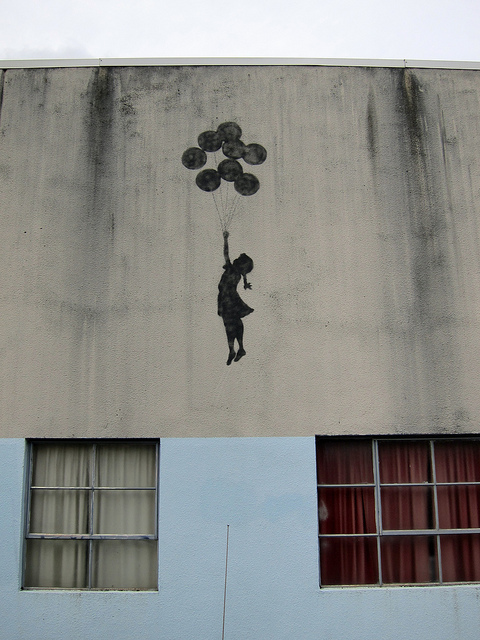
Envision a German hospital run by Catholic nuns in the mid ’90s.
Now place a single pregnant woman in her early 20s on her back on a hospital bed in the labor and delivery unit. A baby entered the world after an episiotomy, through vacuum extraction, while the mother’s body was rushed and shaken by a round of induction pills, an enema, and an I.V. for fluids and synthetic oxytocin still stuck in her arm.
After the birth, the baby was immediately taken away, cleaned, and placed in a small bed with glass walls, right next to the mother, only for a few minutes, then brought to the nursery where she would remain for the remainder of the night until morning. This was my first experience giving birth to my first daughter, more than 20 years ago.
I never fully recovered.
I immediately understood that giving birth was more then just attempting to squeeze a baby out of my birth canal. I handed over my experience to an OB/GYN who I thought was the birth expert. I didn’t have a support system that could have provided helpful information about childbirth. I had no idea about all the factors that would play into what I initially believed should have been a simple low-risk birth for my healthy 21-year-old body.
I felt betrayed and misled. I still wanted to blame the world weeks after, when I felt the sharp pain at the episiotomy incision site between my legs, when walking or sitting. After I was done blaming others, I took a hard look at my own naïve ideas about a birth that got derailed.
Birth started with me. I alone was responsible for handing over my trusting body.
Fast-forward 16 years from the birth of my first child to the birth of my second. This time, I did my homework. I chose my care providers carefully. I asked questions. I prepared my body and mind with prenatal yoga and meditation, and hired a midwife to attend my birth with me. This time, mostly everything went as planned, and the memory of giving birth to my second baby is one of strength and empowerment.
What was different you may ask? Everything. The birthing world around me had changed. I had changed. And most importantly, I took childbirth education seriously. I attribute a lot of this change to my decision to get more involved in my own experience.
Some questions about childbirth continue to reoccur in my life and work. Why do we entrust our birth experience to others and to their drugs, when our bodies are perfectly capable of doing the same thing without an increase in risks and long-term complications? Have we become so detached from our bodies that we accept risks in exchange for a fast and pain-free delivery? When are we going to start to stand up and reclaim our bodies and our birth experiences?
Through my own story I have come to believe that the increasing number of low-risk pregnant women requesting and receiving some kind of intervention during the birth of their babies is largely influenced by how involved a woman decides to get in the process. Here are the three main reasons I’ve come to believe women need to start taking childbirth education seriously:
1. Medical interventions increase childbirth risk factors.
Having a baby isn’t supposed to be easy. We need to look behind procedures and methods that seem to make childbirth a cakewalk. If it sounds too good to be true, it most likely is.
Some women argue that taking pain medications during the labor process is a way to move women forward and away from a time when women didn’t have that option and had to endure the pain of childbirth. But we need to confront our discomforts and fears and take a hard look at what is at stake for the physical health of mothers and their babies. The truth is that we are becoming numb to risks that affect our bodies and the bodies of our unborn children.
When I listen to commercials about new drugs that are brought on the market to help with a number of problems, the side effects range from minor to major problems. I sometimes wonder who would agree to take a drug that has death as a side effect? This article from Sarah J. Buckley M.D., on the risks and concerns for mother and baby, provides a detailed list of what could happen with the use of an epidural, a choice that approximately two out of five women make. Interventions are on the rise for inductions as well. According to research, the induction rate more than doubled to 22 percent within a 16-year time frame, and other studies show an induction rate of 44 percent.
The World Health Organization’s statement on Caesarean section (C-sections) rates, considers the ideal rate within a population to be at 10 to 15 percent. Higher levels are no longer associated with a reduced death rate for mother or child. The C-section rate in the US is more than double that, at 32 percent in 2014, according to the Centers for Disease Control and Prevention, (CDC). Sometimes an intervention is needed to save the life of a mother or child. However, choosing an intervention in situations that are not medical emergencies is changing the experience of having childbirth be a sacred act.
2. Science is great, but it’s not God.
It’s natural, as humans, to wish there was something out there that would hold true and never fail us. After all, this would give us a sense of control and a way to increase our success and limit our rate of failure. However, science is not God. Science is an ever-evolving field of study and we are doing ourselves and our children a disservice if we choose to blindly follow the call of science.
The last thing any woman would like to deal with, when giving birth to a baby, is the negative consequences that could come from invasive procedures. After all, the wish to have a healthy mom and baby is the end goal, right?
Studies have linked the use of synthetic oxytocin during childbirth to problems with bonding and social development. Other studies have linked C-sections with chronic childhood problems, such as asthma, rheumatism, allergies, bowel disorders, and leukemia. These are only a few examples of the potential long-term consequences to our babies, due to decisions we make during birth.
3. The day your child is born is a day you’ll never forget.
The memory of childbirth is linked not only to what the mother remembers intellectually, but also to what she experiences physically and emotionally. Some women see and feel the scars as a reminder for the rest of their lives. One in seven women report that their birth was traumatic and that they experience Post Traumatic Stress Disorder-like symptoms.
The birth day is a memory marker for the baby, too. Babies develop their senses in utero and have a full set of human traits by the time they are born. A baby is even thought to have dreams while in the womb. The choices we make during our birth, program our future family physically and emotionally, for generations to come.
The way a woman chooses to birth may influence how her own children give birth, in the same way that we are impacted by the history of our ancestors. We can choose how we prepare our mind, body, and soul for this life-changing experience called birth. We need to start understanding how important this is, not just for ourselves, but also for our babies, and for the next generations to come.
There comes a feeling of empowerment once we realize what our bodies and minds are capable of doing. If we dare to hold on and claim this power, if we learn to understand, trust, and work with our bodies, it may begin to sound possible to birth our children into this world without needless interventions.
It is time to stand up and hold space for one another, in a non-judgmental but educational forum, so we can reclaim our bodies and our births.
~
Author: Ilona Schenk-Cherry,
Image: WiredForLego/Flickr
Editor: Jean Weiss








Read 0 comments and reply